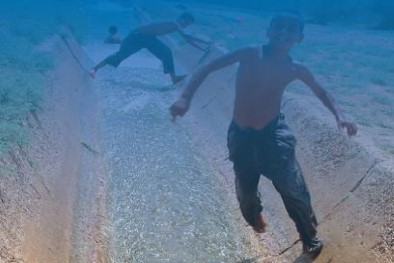Further to the political endorsement in the five target countries, the programme was officially labelled by the 43 members of the Union for the Mediterranean (4 December 2014). The programme is funded by the Swedish Government, through the Swedish International Development and Cooperation Agency (Sida).
Why water integrity matters?
Water integrity is defined as “the adherence of stakeholders and institutions to the governance principles of transparency, accountability and participation in water resource management, based on the core values of honesty, equity and professionalism” (SIWI).
Promoting water integrity and fighting corruption in water resource management leads to improvements in human dignity, health and equitable access to water. Moreover, it helps create a fertile ground for economic growth and investments in water. Ultimately, water integrity is one of the most important means to achieve a water wise world, one that is resistant to corruption.
Aim and Capacity Building approach
The programme aims to improve transparency and accountability practices in water resources management by developing capacities of the different stakeholder groups in the MENA region. By combining peer learning and professional mentorship, the programme has an explicit focus on behaviour change i.e. to be able to translate knowledge acquired through the trainings into actual pro-integrity changes on the ground.
The programme combines a series of workshops and trainings at different levels, using interactive learning methods such as discussions, role play, group exercises and experience sharing. Each of the trainings is adapted to the relevant capacity need of the target groups in this region.
Capacity building for whom?
- Regional level: high level decision-makers
- National level: water officials in regulation, controlling and planning, including private sector
- Operational level: mid-level water managers
- Local level: farmers’ organisations, water user associations, media, women groups and other civil society actors
Geographical focus
The programme targets the MENA region and will initially be implemented in 5 countries, namely:
- Jordan
- Lebanon
- Morocco
- Palestine
- Tunisia
What are the expected outcomes?
Participants to the capacity building activities are expected to gain:
- The ability to recognise vulnerable areas and corruption risks.
- Knowledge on how water related corruption can be addressed.
- An overview of available tools and methodologies for reform.
- The ability to apply their new capacities to improve integrity in their daily work and in their home organisations.
Timeline
2014 – National Water Integrity Assessments
2015 – National Trainings
2016 – Regional Alumni Workshops and Mentorship Programme
2017 – Regional High Level Meeting and Learning Summit
Where do we stand now?
Five Rapid Assessments of the Water Integrity Risks and Capacity Needs for each of the target groups have been carried out in all pilot countries by the national partners. The results have informed the adaptation of the training materials and a synthesis report presents the main findings at the regional level.
To kick-start the capacity building activities a Training of Trainers Workshop was held on December 1-5 2014, in Tunis, Tunisia and hosted by GWP-Med with the dual objective of creating a pool of water integrity trainers in the MENA Region and validating the adapted training materials.
The Training of Trainers was followed up by the launching of the trainings that took place on 14-15 January 2015 at the Arab Water Week in Jordan.
Following this successful first regional training workshop and the upcoming national activities in the five pilot countries, we are now looking forward to further regional training courses to focus on the wider Arab region.
